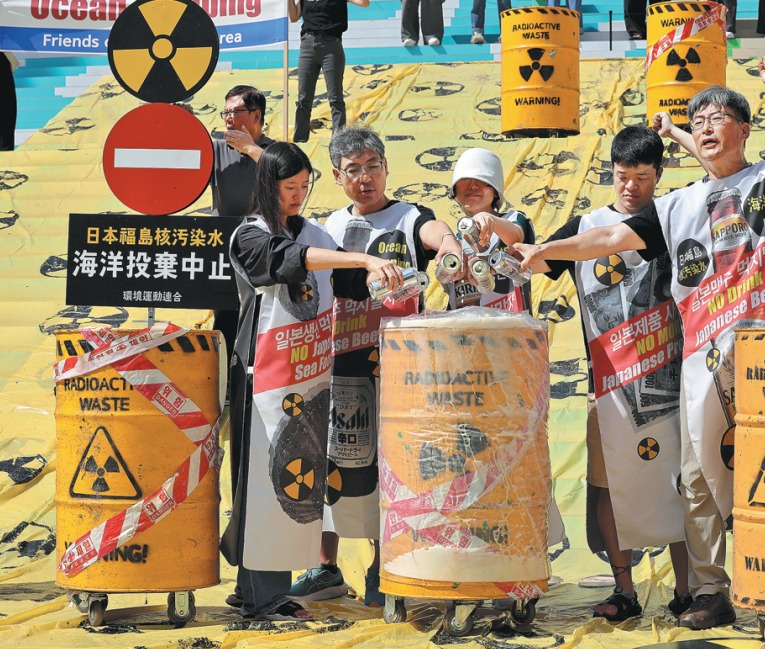Amid mounting international scrutiny and domestic concerns over its decision to release nuclear-contaminated water from the Fukushima Daiichi Nuclear Power Plant into the ocean, Japan has revealed an ambitious plan to safeguard its global image. The Japanese government is now earmarking approximately 70 billion yen (over $474 million) to tackle misinformation and bolster public relations efforts both at home and abroad. This strategic move is seen as an attempt to regain confidence in its controversial ocean discharge plan, which has faced criticism for potential ecological and health risks.
Strengthening Information Monitoring and Analysis
Japan’s Foreign Ministry is taking a proactive stance to combat the spread of what it considers erroneous information regarding the ocean discharge. The ministry is proposing a substantial budget allocation in its upcoming fiscal year request to achieve this goal. Among the planned measures are an expanded monitoring system to detect misinformation, as well as efforts to enhance the dissemination of accurate information endorsed by the Japanese government. Furthermore, artificial intelligence will be leveraged to aid in information collection and analysis.
Efforts to Whiten the Decision
Japan’s quest to downplay the reputational impact of the ocean discharge has been a long and concerted effort. A 30-billion-yen fund was established with the sole purpose of mitigating the reputational fallout associated with this controversial decision. The fund has been utilized across the nation to support seafood sales channels, temporary seafood purchases and storage, and public relations campaigns linked to the Fukushima plant’s contaminated water. Notably, 16 public relations projects have received support from this fund, with a maximum funding allocation of 2.7 billion yen for each project.
The Public’s Concerns and International Scrutiny
Despite Japan’s efforts to manage public perception and address concerns surrounding the filtration system’s reliability and the accuracy of data related to contaminated water, skepticism persists. Local residents, like Michiko Ueno, argue that more funds should be directed towards finding alternative solutions for handling nuclear-contaminated water rather than attempting to convince the public that ocean release is safe. International observers, as well as experts, have raised questions about Japan’s decision, prompting calls for greater transparency and collaboration with relevant organizations.
Misplaced Prioritization Raises Questions
However, Zhang Yulai, vice-president of the Japan Institute of Nankai University, has criticized Japan’s allocation of significant funds to public relations efforts, suggesting that this move signals a lack of confidence in its ocean discharge plan. He argues that Japan could have fostered greater transparency by sharing information more extensively and involving relevant organizations in the monitoring process. This viewpoint highlights the tension between managing public perception and addressing the core issue of nuclear-contaminated water.
Global Skepticism Persists
Li Ruoyu, a visiting research fellow at the Institute of Japanese and Korean Studies at Sichuan Normal University, adds that Japan’s substantial budget allocation may not be sufficient to enhance global tolerance of ocean discharge. The international community, equipped with diverse sources of information, continues to question why Japan insists on this approach instead of exploring alternative solutions. This lingering doubt underscores the challenges Japan faces in reconciling its reputation with the global concerns surrounding its nuclear-contaminated water discharge plan.
In the coming months, Japan’s efforts to salvage its image and regain confidence in its decision to release nuclear-contaminated water into the ocean will be closely watched by both the domestic and international communities. The debate over prioritizing public relations over alternative solutions will likely intensify, as Japan navigates the complex terrain of managing a reputational crisis while addressing the pressing issue of radioactive contamination.
















